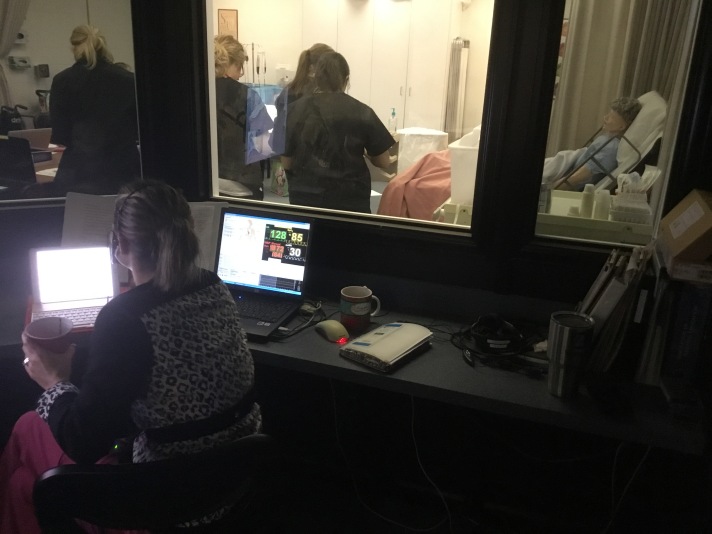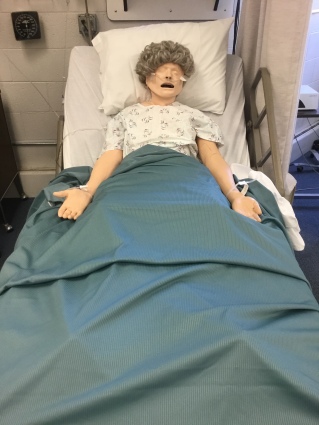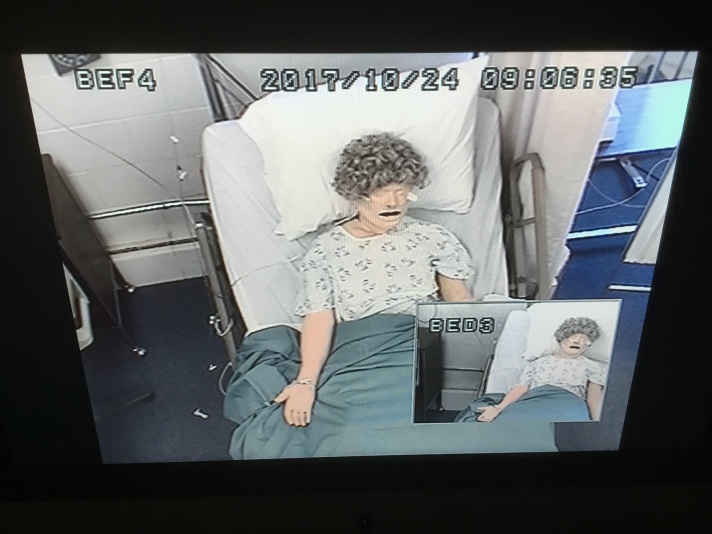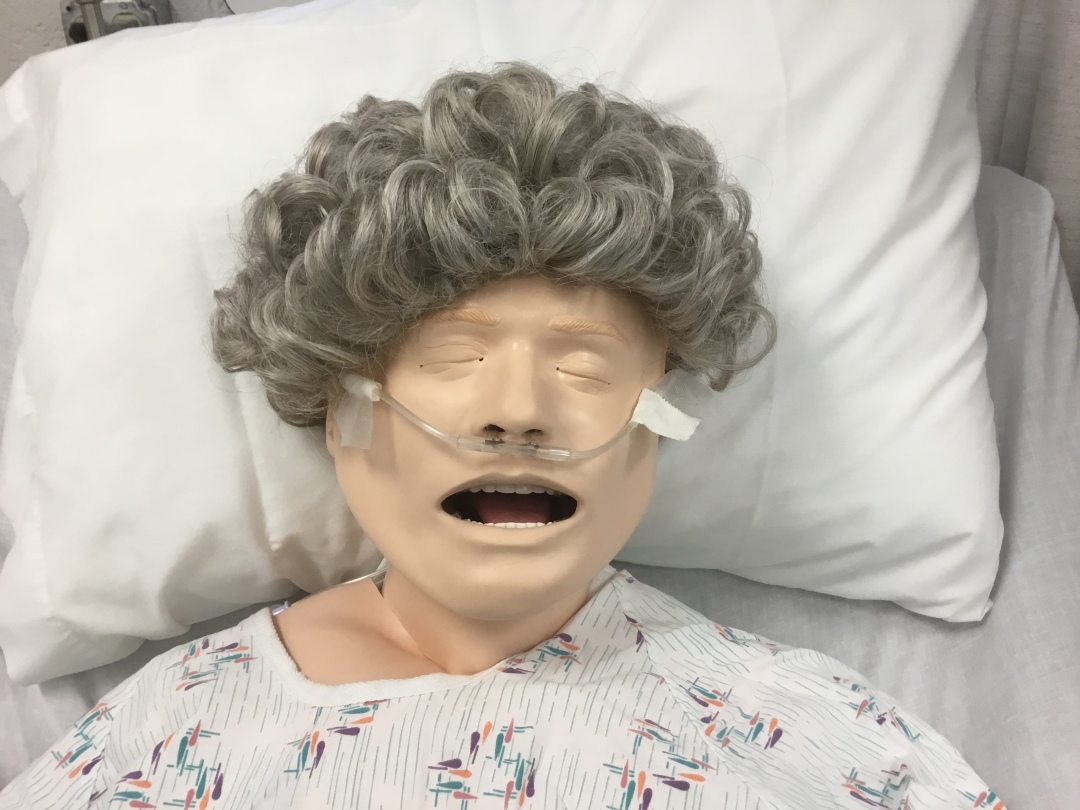Knowing how to read vitals and respond to patient complaints is one thing. Understanding what those vitals mean when a patient is complaining not only of pain, but your ability to care for them is quite another. Nursing is a difficult balance of medical science and the art of addressing human emotions; in other words being a loving parent, doctor, and psychiatrist all at the same time.
Nursing is a high stress field and can place a great deal of strain on students. Learning how to be everything to a patient is often more difficult because of the patient: a scared, stressed student is trying to learn while treating a scared, stressed patient.
In comes Sim Man, or as she is affectionately known in the Nursing Department, “Thelma”.

The NJC Nursing program utilizes a simulation room to curb nervous jitters and learn foundational nursing skills. The room is stocked with the tools of the trade, from sterile sheets to bed pans. It also includes Thelma, the simulation dummy. What Thelma lacks in appearance, she makes up for behind the scenes in a control room, which feels a bit like being in an airport control tower, and hosts the computer software running vital statistics, live video and audio feed, and a mic for the nursing faculty to feign their best “Thelma” impersonation.
As a patient, Thelma is naggy, frustrating, and repetitively inappropriate. She constantly asks when she can go home. She insists on seeing a doctor. And she really wants some Ativan.
In other words, Thelma is your grandma: someone you love dearly, but she’s a terrible patient.
However, she allows students to help her use the bathroom while she bluntly asks how big her poop is – because it’s going to happen at some point in their career and, as with Thelma’s diagnosis, sometimes a nurse needs to know.
Working with Thelma means learning that you don’t take a patients oxygen off while changing the bed sheets – even if it’s in the way.
And having Thelma tell our nursing students exactly where to scrub while practicing bathing a patient means that when they are actually giving your grandma a bath, they are ready.
The simulation lab is the forum where knowing-meets-understanding-meets-applying.
This is where the knowledge of patient treatment meets the how: How do I chart when patients continually hit the call button? How do I deal with visitors constantly bringing food to a diabetic patient? How do I keep patient history in mind while vitals are continually changing? How do you adjust a patient care plan on the go when life happens?
Having a simulation gives a chance to fail at these foundational nursing tasks, without failing a patient.

And they did fail. The students couldn’t get Thelma’s shirt off for her bath, and decided to leave it on. They lowered the bed, not realizing it would affect Thelma’s oxygen. They didn’t know what to do with the fact that she wasn’t drinking enough or how to respond to her inappropriate comments.
After dealing with Thelma the nursing students got to sit down and do three things that will foster their growth as nurses:
- First, they practiced keeping notes and charts, which are essential in patient care,
- Second, they proceeded to pass care to a new shift of nurses who would continue the simulation, and
- Third, they had a meaningful conversation with two faculty members about the experience.
“You did well responding to her dietary responses. ‘No, we don’t have that. Would you like an apple and peanut butter instead?’
Did you notice anything about her fluid intake?
Did you check on her leg again? How could you have addressed that differently?
What would have been the right thing to do?”
A simple conversation, but it creates a beautiful interweaving of experience and prior learning. It also turns teachers into mentors.
Spending a morning in the Nursing sim lab made me ask a lot of questions:
- Where do we see this melding of knowledge and experience on the rest of our campus?
- Are we providing this type of meaningful practice in all of our courses?
- And not just in our CTE programs. What meaningful experiences do we provide our liberal arts or math or business students?
If an example does not readily come to mind, let’s work on that together!
If you know exactly how this is happening in your department, let me know so that we can share another great example with our colleagues!

